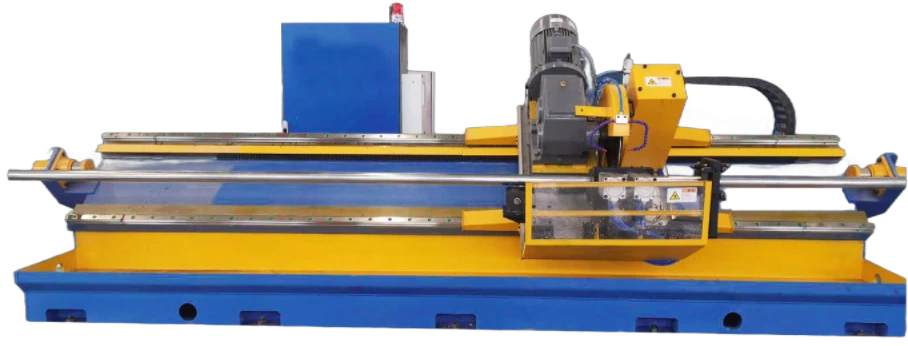Rolling Mill Equipment Available for Purchase or Lease Now
Exploring the Market for Rolling Mills A Comprehensive Guide
In the manufacturing world, rolling mills play a crucial role in the production of various metals and materials. These machines are essential for shaping and refining metal into usable forms, whether it be for construction, automotive parts, or consumer goods. In recent years, the market for rolling mills has seen a notable increase in interest, leading many manufacturers and investors to explore the possibilities of acquiring rolling mills for sale.
Understanding Rolling Mills
Rolling mills are industrial machines that are used to process metal by passing it through a pair of rolls. The process not only reduces the thickness of the metal but also enhances its mechanical properties. There are two primary types of rolling mills hot and cold. Hot rolling involves processing the metal at high temperatures, which makes it easier to manipulate. Cold rolling, on the other hand, occurs at room temperature and results in better surface finish and dimensional accuracy.
The Importance of Rolling Mills
The demand for rolling mills has skyrocketed due to the continued growth of the construction and manufacturing sectors. Metals such as steel, aluminum, and copper require rolling processes to produce plates, sheets, and coils that are crucial for various applications. As industries evolve and new technologies emerge, the need for efficient and advanced rolling mills becomes increasingly evident. With the rise in energy costs and environmental concerns, modern rolling mills are also designed to be more energy-efficient and environmentally friendly.
Market Trends
The market for rolling mills has shown a diverse array of trends in recent years. One significant trend is the push towards automation and digitalization. Manufacturers are increasingly investing in automated rolling mills that utilize sensors and advanced software to monitor the rolling process in real-time. This not only increases efficiency but also helps in minimizing waste and improving product quality.
Additionally, there has been a shift towards using rolling mills for specialized applications. Custom rolling mills are becoming more popular as industries seek to produce materials for niche markets. This adaptation to specific needs allows manufacturers to cater to a wider range of clients and enhance their competitive edge.
Factors to Consider When Buying a Rolling Mill
If you are considering purchasing a rolling mill, several factors should be taken into account
rolling mill for sale

1. Type of Rolling Mill Determine whether you need a hot or cold rolling mill based on the materials you plan to process.
2. Capacity and Size Assess your production needs. Choose a mill that can handle the volume and dimensions required for your projects.
3. Technology and Features Look for advanced features that can enhance performance, such as automation capabilities, energy efficiency, and customized settings.
4. Maintenance and Support Consider the availability of spare parts and the reliability of technical support from the manufacturer.
5. Budget Rolling mills can be a significant investment. Evaluate your budget and consider both the initial purchase cost and the long-term operational expenses.
Where to Find Rolling Mills for Sale
There are various avenues where you can explore rolling mills for sale. Equipment dealers and manufacturers often have listings for new and used mills. Online marketplaces and industrial auction sites can also provide options at competitive prices.
Furthermore, trade shows and industry exhibitions are excellent venues for discovering the latest rolling mill technologies and networking with suppliers. Attending these events can provide valuable insights into the market, allowing you to make a more informed purchasing decision.
Conclusion
The market for rolling mills is dynamic and evolving. As industries adapt to new challenges and technologies, the importance of efficient and specialized rolling mills continues to grow. Whether you're a manufacturer looking to scale up production or an investor seeking profitable opportunities, understanding the intricacies of rolling mills can lead to strategic advantages in the competitive landscape. By considering the various factors involved in purchasing a rolling mill and staying informed about market trends, you can position your business for success in this essential sector.
-
High Frequency Straight Seam Welded Pipe Production Line-BzZhou Xinghua Machinery Equipment Manufacturing Co., LTD.|line pipe steel&welded gas pipeNewsJul.30,2025
-
High Frequency Straight Seam Welded Pipe Production Line-BzZhou Xinghua Machinery Equipment Manufacturing Co., LTD.|High Precision&Automated SolutionsNewsJul.30,2025
-
High Frequency Straight Seam Welded Pipe Production Line - BzZhou Xinghua Machinery Equipment Manufacturing Co., Ltd.NewsJul.30,2025
-
High Frequency Straight Seam Welded Pipe Production Line-BzZhou Xinghua Machinery Equipment Manufacturing Co., LTD.|Precision Welding, High EfficiencyNewsJul.30,2025
-
High Frequency Straight Seam Welded Pipe Production Line|BzZhou Xinghua|Precision Welding&EfficiencyNewsJul.30,2025
-
High Frequency Straight Seam Welded Pipe Production Line - BzZhou Xinghua|Precision Engineering&EfficiencyNewsJul.30,2025


